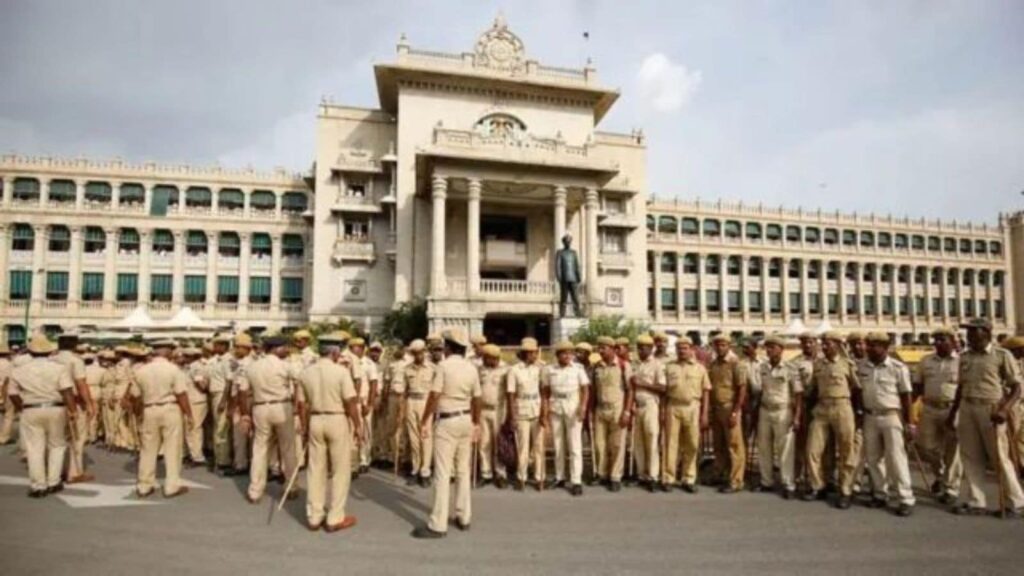After the passage of the Karnataka Decriminalisation (Amendment of Provisions) Act, 2025, as many as 12 laws are set to be amended. The stated objective of the new Act and these amendments is to decriminalise and rationalise several offences, for ease of living and business through “trust-based governance”.
1. The Bangalore Water Supply and Sewerage Act, 1964
2. The Karnataka Urban Development Authorities Act, 1987
3. The Karnataka Agricultural Produce Marketing (Regulation and Development) Act, 1966
4. The Karnataka Warehouse Act, 1961
5. The Karnataka Tourism Trade (Facilitation and Regulation) Act, 2015
6. The Karnataka Industrial Areas Development Act, 1966
7. The Karnataka Gram Swaraj and Panchayati Raj Act, 1993
8. The Karnataka Lifts, Escalators and Passenger Conveyors Act, 2012
9. The Karnataka Municipalities Act, 1964
10. The Karnataka Municipal Corporations Act, 1976
11. The Karnataka Town and Country Planning Act, 1961
12. The Karnataka Industries (Facilitation) Act, 2002
With the new law having passed in the legislature in August and received the Governor’s assent on September 12, it is set to have impacts on municipal enforcement as well as businesses, with several offences no longer attracting imprisonment and instead dealing with fines appropriate to inflation.
Impact on municipal functioning and prescribed penalties
With regard to the Bangalore Water Supply and Sewerage Act, 1964, the penalty of six months imprisonment for several offences has been dropped, while the monetary penalty for these offences has been enhanced.
For instance, injuring or interfering with the flow of BWSSB sewers originally attracted a maximum penalty of Rs 5,000. That has now been enhanced to Rs 50,000. Likewise, the amendment to the Karnataka Urban Development Authorities Act, 1987, also now sets a Rs 50,000 fine for attempting to make a new layout/extension or street against existing regulations.
In the Karnataka Town and Country Planning Act, 1961, contravening master plans and regulations no longer attracts a possible three-month sentence but only a maximum fine of Rs 50,000.
However, engineers or architects registered with a local body who are responsible for building or layout plans must inform developers and builders to construct in accordance with the law and said plans. If this is not done, the engineer/architect would be liable for a Rs 2 lakh fine or cancellation of license on repeated offences.
Story continues below this ad
The Karnataka Gram Swaraj and Panchayat Raj Act, 1993, no longer has one month’s imprisonment as a penalty for obstructing certain officers, but now sets a penalty of Rs 1,000-5,000. Several other fines in the Karnataka Municipalities Act, 1964, and the Karnataka Municipal Corporations Act, 1976, have also been enhanced to higher amounts, considering the differing strength of the rupee at the time these laws were originally passed.
Changes dealing with non-municipal issues with impact on industries
With regard to the Karnataka Tourism Trade (Facilitation and Regulation) Act, 2015, several offences dealing with operating a tour without registration, acting as a guide without a licence, etc, no longer attract short sentences but now have escalating monetary penalties.
Meanwhile, carrying on a warehousing business without a proper license is no longer punishable by a six-month sentence but by an enhanced fine of Rs 10,000 under the Karnataka Warehouses Act. Preventing the entry of authorised persons under the Karnataka Industrial Areas Development Act likewise carries only an enhanced fine.
In connection with the Karnataka Lifts, Escalators and Passenger Conveyors Act, contravening any provision of the Act, licence conditions or government directions could attract a sentence of up to six months and/or a Rs 10,000 fine. The amendment eliminates the sentence and introduces several potential fines for various violations.
Story continues below this ad
Meanwhile, under the Karnataka Industries (Facilitation) Act, 2002, industries that fail to comply with conditions laid down in their undertakings, self-certifications to nodal agencies, or violate other provisions will now be liable for a Rs 2 lakh fine on the first offence, Rs 4 lakh on the second, alongside action under the relevant law.

